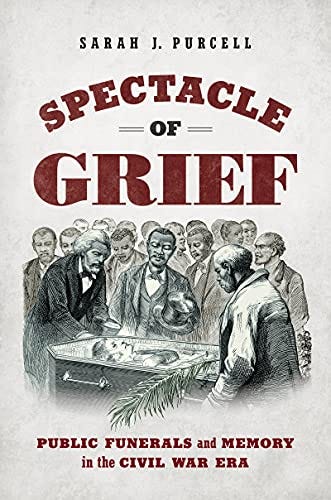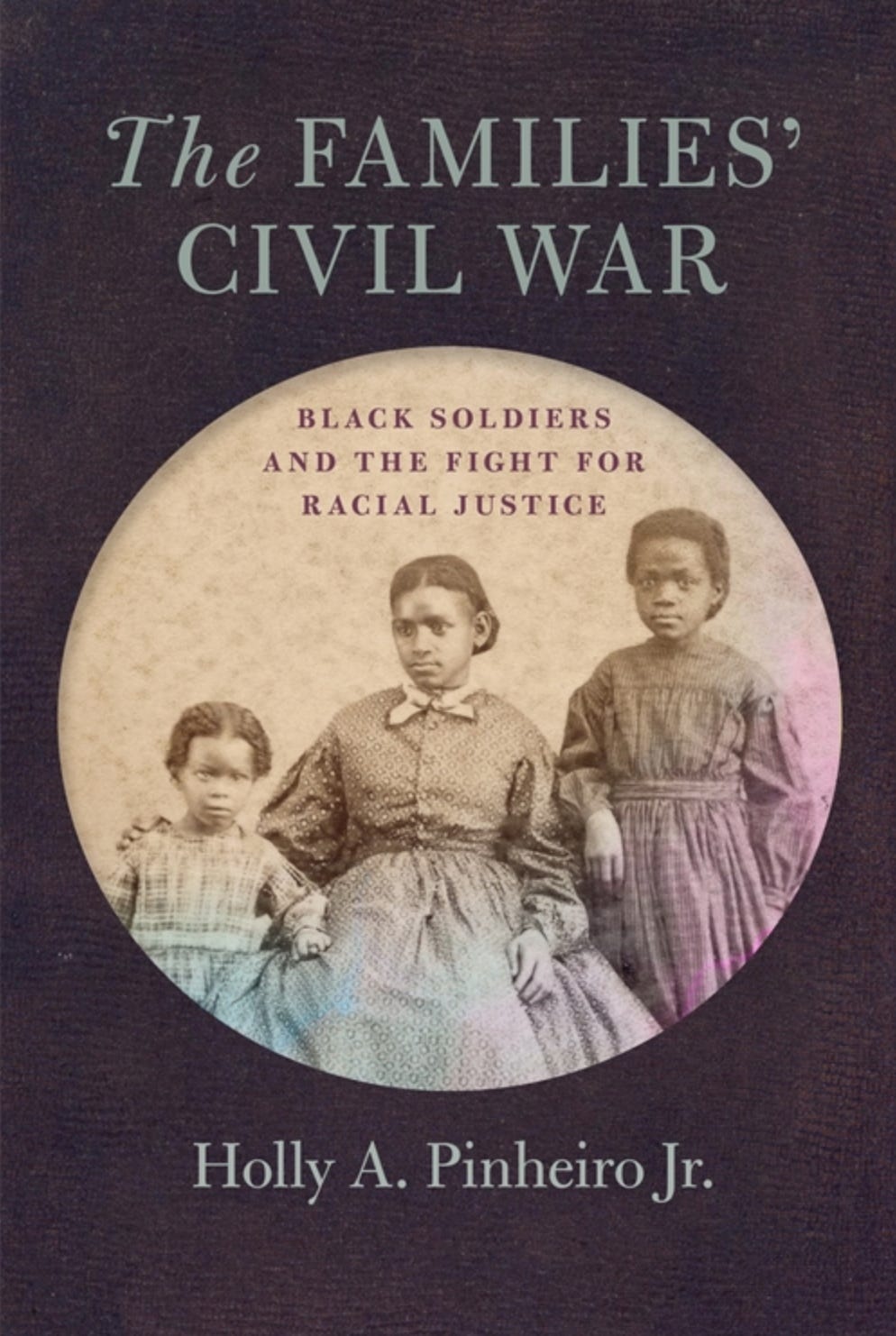Reminder: The ability to post comments will be limited to paid subscribers beginning on December 1. Paid subscribers will also have access to the chat room and will be entered to win one of three copies of my most recent book.
Please note that subscription rates will increase on December 1.
Thanks to Terry Johnston at The Civil War Monitor magazine for the invitation to share some of my favorite Civil War books of 2022. I’ve done this for a number of years and it is never easy. The field of Civil War history remains incredibly vibrant and increasingly expansive both in terms of subject matter and interpretive focus.
This year my selections appear alongside historians Brian Matthew Jordan, Jennifer Murray, Gerald Prokopowicz, and Cecily Zander.
Top Pick: Sarah J. Purcell, Spectacles of Grief: Public Funerals and Memory in the Civil War Era (University of North Carolina Press).
Sarah Purcell’s Spectacles of Grief is a fascinating study that explores the culture of memory and mourning practices surrounding some of the most notable Americans, from the antebellum era through the postwar period. Her study begins with Henry Clay, whose death in 1852 came at a time of increased sectional tensions and doubts about the nation’s future. Many Americans used the occasion to promote national unity while abolitionists pushed their own uncompromising position on the evils of slavery. Purcell uses the deaths of Elmer Ellsworth and Confederate general Thomas J. Jackson to highlight how the war promoted a distinct American and Confederate identity and how their deaths anticipated the postwar battle over Civil War memory. The final three chapters, which explore the deaths of Confederate generals Robert E. Lee and Joseph Johnston George Peabody, Charles Sumner, Frederick Douglass and Winnie Davis, challenge our tendency to analyze postwar battles over the legacy and meaning of the war as reflecting distinct and mutually exclusive narratives of Civil War memory. Purcell reminds us that Lost Cause, reconciliationist, and emancipationist narratives often overlapped one another. White southerners could both mourn Lee as a Lost Cause icon and claim their place as loyal Americans while Douglass’s funeral in Washington, D.C., and Rochester, New York, evoked a powerful emancipationist memory as well as a sharp white supremacist backlash. I can’t recommend this book enough, especially at a time when our nation struggles over how to mourn and remember in the midst of a deadly pandemic.
Honorable Mention: Holly A. Pinheiro Jr. The Families’ Civil War: Black Soldiers and the Fight For Racial Justice (University of Georgia Press).
The past few decades have produced a wave of studies focusing on the lives of Black Civil War soldiers. We know a good deal about their experiences on the battlefield and the dangers they faced at the hands of vengeful Confederates, but we are still lacking in studies of their families back home. Regardless of race, families struggled in numerous ways as fathers, sons, and brothers served in faraway places, but as Holly A. Pinheiro Jr. demonstrates in The Families’ Civil War, free black families in the North faced distinct challenges rooted in decades of racial discrimination, violence, and disfranchisement. The focus on native-born, African-American Philadelphians and their families provides sharp interpretations of both challenges faced during the war and the hopes and dreams of these families invested in a reunited nation.
Looking Forward To: Donald Yacovone, Teaching White Supremacy: America’s Democratic Ordeal and the Forging of Our National Identity (Pantheon) and Eric Michael Burke, Soldiers From Experience: The Forging of Sherman’s Fifteenth Army Corps, 1861-1863 (Louisiana State University Press).
We are in the midst of a contentious debate about how American history is taught, especially the history of slavery and race. Donald Yacovone’s Teaching White Supremacy explores school textbooks and other teaching materials—much of it published in the wake of the Civil War and Reconstruction—and its role in the distortion and mythologizing of this important chapter in American history. Eric Michael Burke’s Soldiers From Experience promises a major reassessment of the importance of rifled weapons, physical terrain, and the extent to which interaction with southern civilians and the enslaved shaped the views of Union soldiers during a crucial transitional period of the Civil War.
Feel free to share your favorite Civil War books of the past year or anything else that you’ve enjoyed reading in the comments section below.






Has anyone read The Grimkes: The Legacy of Slavery in an American Family or the new Jon Menachem biography of Lincoln? I have them on hold (have not read them) and would be wondering if they would be considered for best Civil War book of 2022